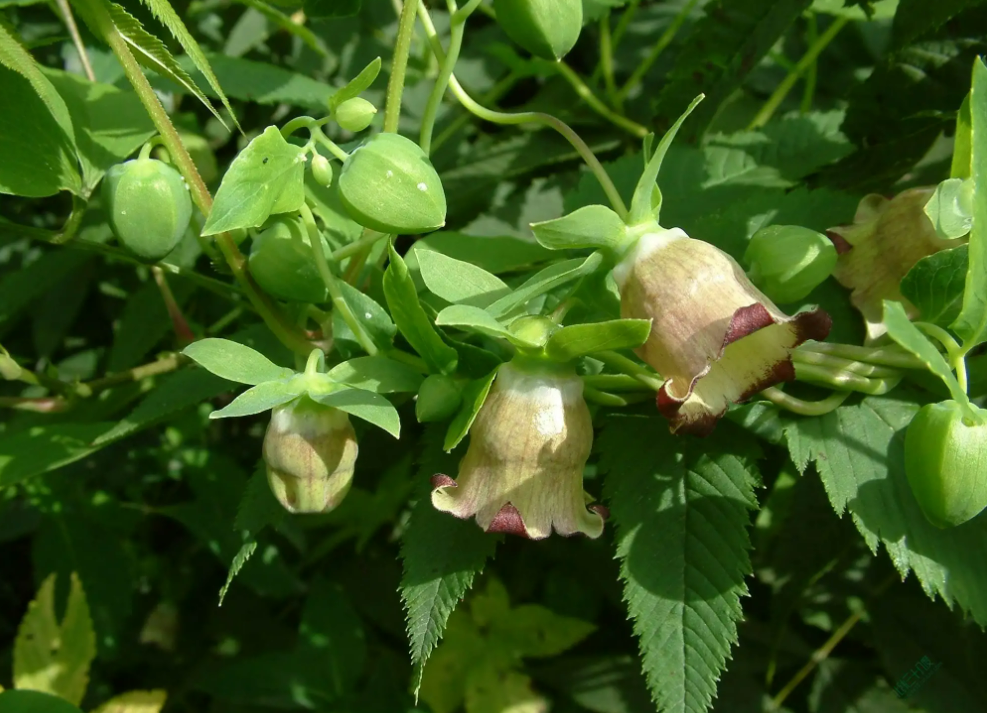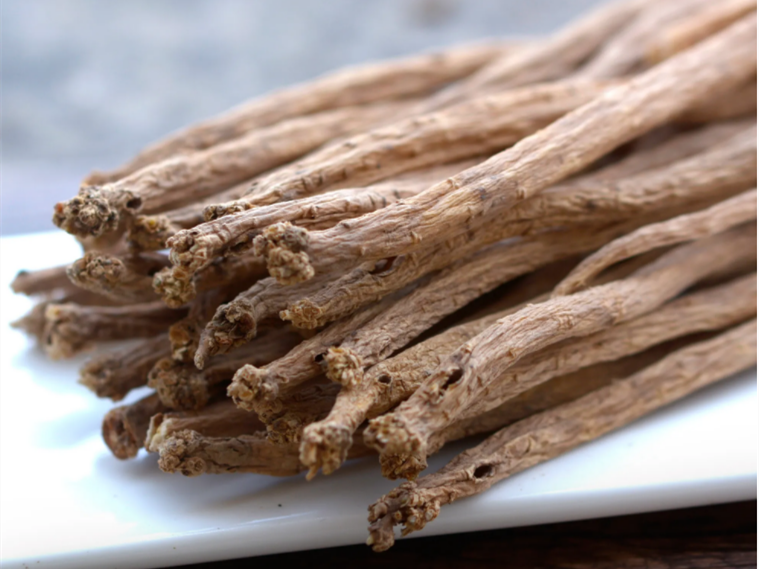Codonopsis, also known as Dangshen, is the dry root of the flowering plant radix codonopsis pilosula in the platycodon family. So far, more than 230 compounds have been isolated and identified from Codonopsis pilosula, including alkaloids, alkynes, terpenoids, flavonoids, lignin, steroids and sugars. It has a long history used for replenishing vital energy in China and Korea, acting on the nervous system, endocrine system, immune system and so on. Studies have found that codonopsis pilosula root offers various benefits such as protecting nerves, protecting the liver, fighting tumor, oxidation and inflammation and anti-stress. The codonopsis pilosula has similar benefits as Ginseng, also referred to as the poorman/s ginseng because of their various benefits.
Nervous system protection
Studies have found that codonopsis pilosula extract can protect nerve cells, improve learning and memory ability and relieve symptoms of Alzheimer’s disease (AD) and other neuroprotective effects. The water extract and Lancemaside A could up-regulate the activity of protein phosphatase 2 (PP2A), reduce the phosphorylation level of Tau protein, repair damaged neurons, and inhibit the activity of AChE. The total alkaloids of Codonopsis pilopilodii can enhance neurite growth and increase the phosphorylation of mitogen-activated protein kinase in PC12 cells. Total saponins of Codonax officinalis can improve the survival rate of cerebral astrocytes after ischemia reperfusion injury in rats. Other studies have shown that codonopsis pilosula polysaccharide can prevent the hyperphosphorylation of AD-like Tau protein mainly by activating PP2A.
Regulate blood sugar and blood lipid
Codonopsis pilosula extract can regulate blood sugar and blood lipid. The water extract of Codonopsis can reduce blood glucose, inhibit aldose reductase activity and delay the progression of diabetes. The total saponins of Codonopsis pilosula can reduce the contents of total cholesterol, triglyceride and low-density lipoprotein cholesterol in the serum of hyperlipidemia rats, and increase the contents of NO and high-density lipoprotein cholesterol. Codonopsis pilosula polysaccharide CLPS alleviates insulin resistance induced by a high fat/high sugar diet through antioxidant stress. Neutral polysaccharide from Codonopsis pilosula can significantly improve insulin secretion of INS-1 cells and reduce blood glucose concentration of type 2 diabetic mice.
Regulate the immune system
Codonopsis pilosula has the function of regulating immune balance. The methanol extract of Codonopsis pilosula can regulate the immune response mediated by macrophages and promote anti-inflammatory activity. It was proved that the methanol extract can improve the immune function induced by cyclophosphamide in mice. In addition, the total saponins of Codonopsis can enhance the regulation of cellular immunity, humoral immunity and non-specific immunity after the preparation of nano-emulsion. As a natural immunomodulator, codonopsis polysaccharides can maintain T cell balance and regulate T cell circulation in mice, weaken sepsis caused by cecal ligation and puncture in mice, and promote the phagocytosis of alveolar macrophages damaged by chronic obstructive pulmonary disease and improve inflammation. Selenization of codonopsis pilosula polysaccharide can improve the phagocytic index of peritoneal macrophages and induce the secretion of TNF-α and IL-6. Exopolysaccharides from Codonopsis pilosula can activate macrophages and inhibit the proliferation and migration of cancer cells. Rcap-1 and RCAP-2, two pectin polysaccharides of Codonopsis pilosula, also had significant immunomodulatory effects.
Effects on the digestive system
Codonopsis pilosula extract has the pharmacological effects of treating gastric ulcer, promoting intestinal tract and improving digestive ability. The mouse experiment proves that Codonopsis pilosula can treat peptic ulcers and promote defecation. Superfine powder of Codonopsis pilosula can protect gastric mucosa of rats with gastric ulcer. The extracts of Codon flavone can promote the cell migration of small intestinal epithelial cells, reverse the inhibition of cell migration caused by DFMO or 4-AP, and increase the content of arginine in cells, which may be related to polyamine signaling pathway. Codonyl can increase the content of prostaglandin (PG), resist the acid-secreting effect of gastrin (Gas), stimulate the synthesis and release of epidermal growth factor in gastric mucosa, and have a certain protective effect on gastric mucosa injury caused by ethanol. Codonopsis inulin fructan can improve gastrointestinal function by changing the composition and metabolism of intestinal microbiota, which is a potential prebiotics and a potential component in the treatment of acute gastric ulcer.
Effect on blood circulation
The extract of Codonopsis can treat heart failure, regulate the growth and development of blood cells, enhance hematopoietic function and inhibit platelet aggregation. Codonopsis pilosula can reduce the damage of insulin-like growth factor II receptor pathway and apoptosis of cardiomyocytes. It can reduce the left ventricular end-diastolic pressure, inhibit the increase of MDA, LDH and CK, and enhance the activities of SOD, GSH-Px, Na+-K+-ATP and Ca2+-ATP, and has a protective effect on myocardial ischemia/reperfusion injury. Meanwhile, codonax officinalis extract can increase the maximum rate of left ventricular pressure rise/fall, improve the symptoms of chronic heart failure rats, and delay the occurrence and development of chronic heart failure. Dangshen granules can improve the ejection fraction, left ventricular short axis systole rate, calcium transient peak value, and shorten the time of calcium transient regression in the treatment of heart failure in mice.
Antibacterial, antiviral
Modern research has found that Codonopsis pilosula has antibacterial and antiviral effects. In vitro antibacterial experiments showed that codonopsis codonopsis ethanol extract had significant inhibitory effect on staphylococcus aureus, Bacillus subtilis, Bacillus anthracis, Escherichia coli, Salmonella typhi and other common bacteria. Codonopsis polysaccharide can reduce IFN-β expression level and inhibit duck hepatitis A virus virulence.
Antitumor
The water extract of Codonopsis pilosula could promote the apoptosis of HL-60 cells. Codonopsis saponins can inhibit the proliferation of HepG2 cells and SMMC-7721 cells. CPP1a and CPP1c can activate caspase-3 and induce apoptosis of HepG2 cells by up-regulating the ratio of Bax /Bcl-2. In addition, it also has certain cytotoxicity to Hela cells of cervical cancer and MKN45 cells of gastric cancer. Codonopsis pectin polysaccharide has obvious cytotoxicity to human lung adenocarcinoma A549 cells, while Codonopsis acid polysaccharide is a potential candidate compound for preventing tumor metastasis, which can inhibit the invasion, migration and adhesion of human ovarian epithelial tumor HO-8910 cells.
The above advantages and uses more from the Chinese medicine experience and accidental data, please consult your doctor before eating or medical application.
- Dandelion Extract: What It Is, Benefits, Uses and Side Effect - April 23, 2024
- Is Berberine Extract Help For Weight Loss? - April 11, 2024
- Why Is Pysllium Husk Powder A Popular Meal Replacement Ingredient? - April 3, 2024




